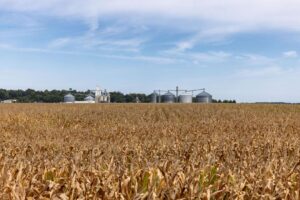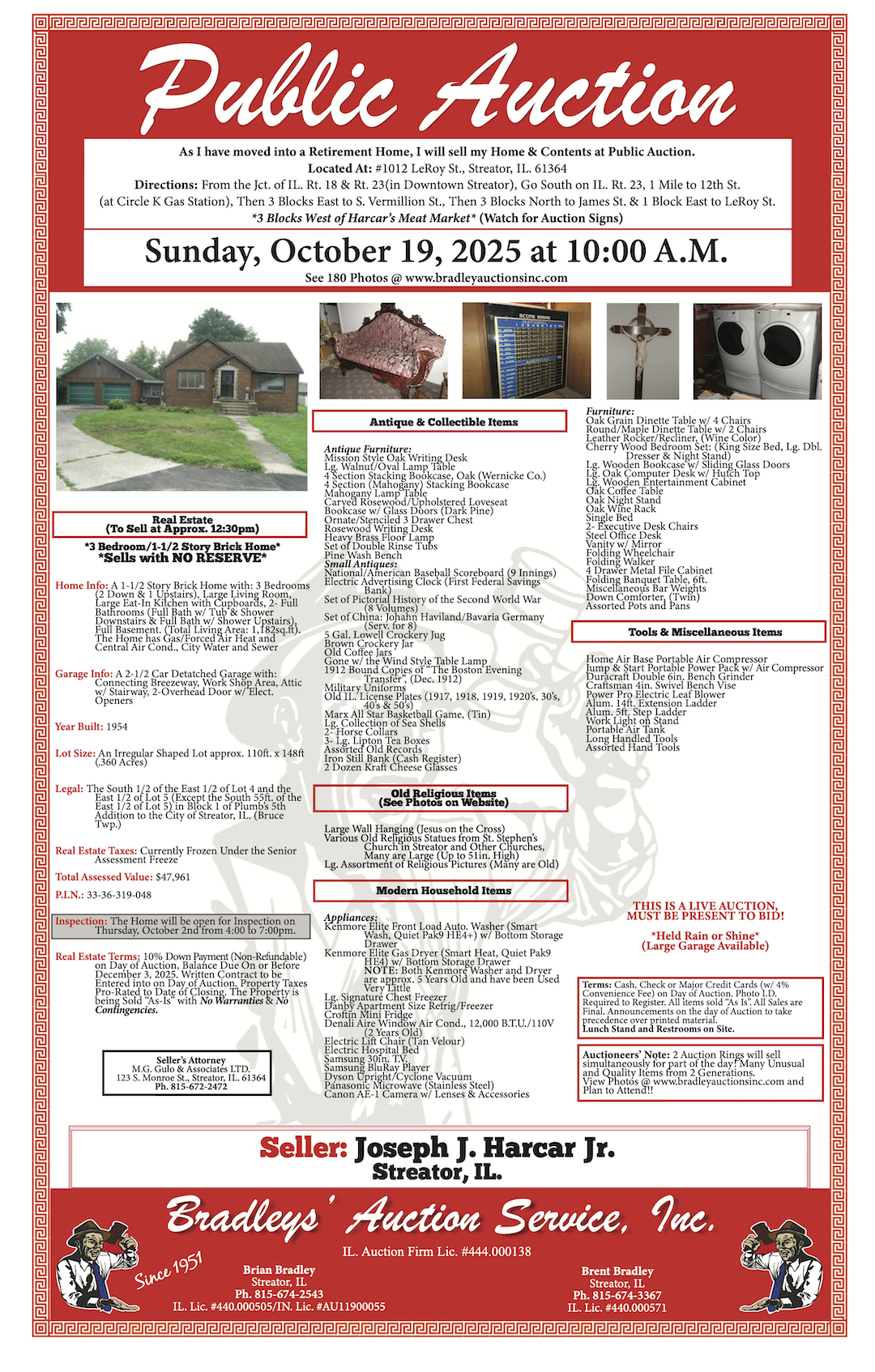Dry conditions ignite field fire risk
By RHIANNON BRANCH
FarmWeek
 Dry conditions across much of Illinois increases the risk for field and equipment fires as harvest season ramps up.
Dry conditions across much of Illinois increases the risk for field and equipment fires as harvest season ramps up.
“We’ve had a major shift in the environment this summer, keeping in mind how damp it was this spring, so this drought is a little unexpected and it may be not top of mind for everybody to be thinking about just how dry it is out there,” University of Illinois Extension Specialist Josie Rudolphi told FarmWeek.
Rudolphi shared five tips for farmers to help prevent and prepare for potential fires this season.
1. Clean equipment
Make sure harvesting equipment is cleaned regularly to remove crop residue, grease and oil. She recommended using a long-handled broom or leaf blower to remove debris in the field.
2. Stick around
Operators should stay near field equipment until machines have cooled down appropriately. “One thing we tend to see is people shut off the equipment, they’re in a rush to get out of the field, they don’t wait until the equipment is fully cooled down and something sparks and catches fire,” Rudolphi said.
3. Keep fire extinguishers handy
Make sure each machine has the proper fire extinguisher on board. This can help put out small fires or aid the operator in getting away from the machine safely.
“While we do encourage you to have your fire extinguisher handy, we also want to remind people how quickly fire moves and it’s more important that they get safely away from the fire than try to fight it themselves,” Rudolphi said.
4. Charge cellphones
Make sure cellphones are fully charged to have the ability to call 911. While it seems simple, it is easier said than done with farmers working long hours. Rudolphi recommended having a phone charger handy in every piece of equipment. They can be placed and restocked along with first-aid kits each season.
5. 911 address list
Operators should have an accessible list of 911 addresses for every field so first responders know where to go.
“We know our fields by obscure names of people who lived there hundreds of years ago, but our fire department doesn’t know the fields by the farm names that we’ve given them,” Rudolphi said.
“The 911 address will easily direct emergency vehicles to your field if you need it.”

If a fire breaks out
Following these prevention measures will minimize the risk, but fires can happen anywhere, anytime. If a fire does break out, operators are encouraged to get away from the fire and call 911 immediately, as fires can spread rapidly.
**Editor’s Note: If you find the story here of value, consider clicking one of the Google ads embedded in the story. It costs you nothing but Google will give the website owner a few cents. This is a way to help support local news at no cost to the reader.
“Some recommendations have been to keep tillage equipment readily available and I think that’s wise, but I also think that’s something you do in collaboration with a fire department,” Rudolphi said, noting untrained individuals should not attempt to put out a fire to save crops or equipment.
“Let first responders show up. They’ll help direct tillage equipment if they think there’s some utility to that,” she said. “Get as far away from the field as possible, make way for emergency vehicles, and keep in mind things like overhead power lines and other compounding hazards that could be present.”
Resources
Field fires can cause loss of crops, equipment and sometimes life. Rudolphi said it can be a devastating and stressful situation to be exposed to, but there are resources to help farmers cope.
Through the Illinois Ag Mental Health Voucher Program, people can receive free professional behavioral health services. Individuals can also call the Concern Hotline at 800-447-1985. Rudolphi encourages farmers to utilize those resources to help manage stress.
This story was distributed through a cooperative project between Illinois Farm Bureau and the Illinois Press Association. For more food and farming news, visit FarmWeekNow.com.

































